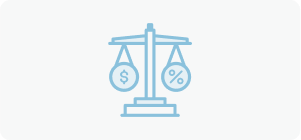



Discover the potential of a reverse mortgage. Explore benefits, drawbacks, and the application process for Utah homeowners.

A reverse mortgage is a home loan that allows homeowners aged 62 and older to convert part of their home equity into cash. Unlike a traditional mortgage, you don’t make monthly payments. Instead, the loan balance grows over time, and repayment happens when you sell the home, move out permanently, or pass away.
For Utah residents, a reverse mortgage can provide financial security, help cover medical expenses, or even fund long-term care. It allows you to age in place and maintain your lifestyle without the pressure of a monthly mortgage payment.
To qualify for a reverse mortgage in Utah, you must meet the following criteria:
Once you obtain a Utah HECM loan, payments aren’t required until the last remaining homeowner has permanently left the home, such as at the time of death or when transitioning to assisted living. In the meantime, you can use the borrowed cash however you want.
However, it’s critical to remember that interest accrues (meaning your loan balance goes up each month), and you’re still responsible for property taxes, homeowners insurance, and keeping the home in good condition.
Homeowners can access cash in several ways:
Interest Rates and Loan Balance (H3)
Interest rates impact the loan balance, which grows over time. This is different from a normal mortgage. A traditional home loan requires you to pay interest as it occurs. You pay a portion of the principal along with interest, and your total balance due gets a little smaller each month.
With a reverse mortgage, you’re not required to pay that interest—meaning the loan balance gets bigger as time passes.
The loan balance increases more slowly the lower your interest rate, so it pays to find the best possible option. Always consult a Utah reverse mortgage calculator for an accurate estimate. Better yet, talk with one of City Creek Mortgage’s representatives at no cost to learn more.
Are you looking for low rates on a Utah reverse mortgage? Our Utah reverse mortgage specialists can quickly tell you what rates you qualify for.
Pro tip. These home loans aren’t designed for borrowers who don’t intend to stay long-term in their primary residence. It helps to map out roughly how long you think you’ll remain in the house.
Seeking professional financial guidance is crucial. City Creek Mortgage’s loan officers provide personalized consultations to ensure you understand the economic implications of a reverse mortgage as part of your retirement strategy.
HECM loans are regulated by the Housing and Urban Development (HUD), which offers protections to borrowers, such as mandatory counseling sessions. Reverse home loans are also federally insured, meaning that your heirs will never owe more than what’s indicated in your paperwork as long as you meet your obligations.
Utah has specific consumer protection laws related to reverse mortgages. It’s helpful to familiarize yourself with these benefits, such as:
City Creek Mortgage’s experienced team helps guide you through each step, ensuring clarity and confidence in your decision-making process.
There are benefits and drawbacks to reverse mortgages in Utah. If you decide a HECM loan isn’t for you, consider other options for accessing home equity, such as:
A Utah reverse mortgage loan can be an effective way to get cash for the equity in your home. However, it’s not a decision that should be taken lightly. City Creek Mortgage can walk you through the pros and cons of your reverse mortgage options, help you understand the role of property tax, explain alternatives, and more. We’d love to educate you whether you’re estate planning, have questions about your existing mortgage, or want to do your reverse mortgage right.
Ready to explore if a reverse mortgage is right for you? City Creek Mortgage experts are here to help you every step of the way and can provide an instant quote based on today’s most competitive reverse mortgage rates.
—
By understanding the intricacies of reverse mortgages, you can make an informed decision that supports your financial goals. Whether you’re looking to supplement your retirement income or ensure you can age in place, City Creek Mortgage has the expertise to guide you through the process.



